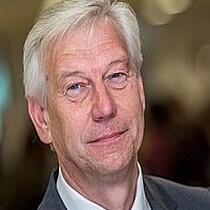

Article: Friday, 20 January 2017
What is it about a TV advert that triggers people to find the product online? Scanning consumers’ brains has allowed Linda Couwenberg of Rotterdam School of Management, Erasmus University (RSM) to discover that a TV advert works best when it both highlights a product’s functional benefits and triggers the viewer’s imagination. This particular combination of elements activates specific parts of the viewer’s brain most intensely, she found, which makes the advert more effective.
Couwenberg and her team studied 11 different TV commercials, all created for the same brand of pain-relieving muscle and joint gel. Each advert used a slightly different style in its approach; some focused on functional elements by showing specific features and explaining benefits of the gel’s use; others showed ‘experiential elements’: they associated the product with positive emotions, sensations or experiences.
Researchers aimed to find out which elements are most effective at triggering consumers to buy the product. First, they asked advertising experts to identify which functional and experiential elements the adverts contained.

The commercials were shown to a test group of 1,239 consumers. After watching one of the advertisements online, subjects could click through to the product website. The research team from measured the click-through rate and found that the most effective adverts contained a particular combination of elements.
Those that emphasised the specific advantages of the product were effective, the team found. But the most effective adverts also contained the experiential element that ‘triggered subjects’ imaginations’. The combination of those elements resulted in the highest click-through rate.
But what makes these elements so effective in activating consumers’ interest? To answer that, the researchers conducted functional magnetic resonance imaging (fMRI) of the brains of 24 subjects while they were watching the adverts. The fMRI scans revealed activity in the subjects’ brains when they viewed the adverts.
Adverts that highlight the product’s advantages – the most successful functional element – trigger the most activity in the part of the brain associated with recognising and identifying objects: ‘what am I looking at, and how can I use it?’

Adverts that appeal to the imagination, or have an original way of delivering the message lead to the most activity in the part of the brain, is associated with more complex cognitive processes such as sustained attention, working memory and creative thinking.
Interestingly, the researchers found that activity in these two specific parts of the brain predicted the number of click-throughs in the group of consumers that was surveyed online as part of the study.
According to Couwenberg, this study shows that the effectiveness of a marketing message cannot be explained by isolating just one simple brain process. Successful TV adverts trigger a complex combination of processes in the brain. The study also identified the specific elements of an advert that are most successful in engaging those brain processes. By understanding which elements are most effective in doing what, marketing professionals can optimise the creative development of adverts.
Future research could establish how these mechanisms work in other product categories, says Couwenberg. What elements of adverts and brain processes make people click through in more hedonic lifestyle products such as package holidays or designer clothing, for example? With that knowledge, marketing professionals can predict the effectiveness of new adverts by scanning the brains of a relatively small number of people.


Couwenberg, L.E., Boksem, M.A.S., Dietvorst, R.C., Worm, L., Verbeke, W.J.M.I. & Smidts, A. (2017). Neural Responses to Functional and Experiential Ad Appeals: Explaining Ad Effectiveness. International Journal of Research in Marketing (STAR), Accepted (in press)


Science Communication and Media Officer
Rotterdam School of Management, Erasmus University (RSM) is one of Europe’s top-ranked business schools. RSM provides ground-breaking research and education furthering excellence in all aspects of management and is based in the international port city of Rotterdam – a vital nexus of business, logistics and trade. RSM’s primary focus is on developing business leaders with international careers who can become a force for positive change by carrying their innovative mindset into a sustainable future. Our first-class range of bachelor, master, MBA, PhD and executive programmes encourage them to become to become critical, creative, caring and collaborative thinkers and doers.
